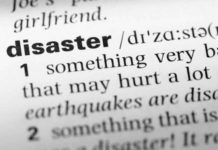In a recent incident, a group of attackers forcefully raided a school in Nigeria, kidnapping a minimum of 287 students. This episode echoes similar assaults that have plagued the area in recent times, as various extremist factions have instilled fear among both tourists and residents. While no entity has claimed responsibility for these abductions, authorities are pointing towards a local group as the likely perpetrators of this latest assault.
According to The New York Post, the event occurred on March 7 in Kuriga town, situated in Kaduna State in northwest Nigeria. The assailants besieged the school around 8 a.m., coinciding with the start of classes. Governor Uba Sani of Kaduna pledged to ensure the safe return of every abducted child, affirming collaboration with local security forces. Meanwhile, search efforts persist as anxious parents and relatives anxiously await any developments.
ABC News suggests that an Islamic extremist group could be behind the attack, although it’s also possible that bandits—armed gangs prevalent in the region—perpetrated the assault. These bandits have been linked to previous abductions, as well as instances of mass violence and other illicit activities.
They’ve seized control of local farms and mining areas, subjecting residents to forced labor. With the country’s military stretched thin, authorities struggle to combat this menace effectively. Past incidents indicate that kidnappers have coerced victims into marriages with their members, but recent events primarily aim at ransom collection.
These bandit groups originated from conflicts among local nomads vying for scarce land resources. Over time, they have transformed into sophisticated criminal syndicates, asserting control over extensive territories. Authorities estimate that hundreds of heavily armed bandit gangs are presently instilling fear across the region.
Since 2014, approximately 1,500 students have been kidnapped in the area. Children are frequently targeted due to their ability to elicit strong emotional reactions. Consequently, both families and government agencies frequently pay to ensure the safe return of individuals, leading many of these groups to view ransom collection as a lucrative enterprise.




